In psychology, the term ‘bonding’ refers to a positive experience of feeling closer to someone after going through either a stressful or exceptionally good experience together.
However, ‘trauma bonding’ or ‘traumatic bonding’ represents a state of emotional attachment to an abuser. In trauma bonding, a person tends to mistake abuse for love, which keeps them loyal to both the abuser and the traumatic experience.
Traumatic Attachment Bond in Childhood
While people can experience trauma bonding regardless of their age, children and young people are most at risk. Affection is one of the basic human needs, and this need is especially strong in childhood – children seek attention from their caregivers, even if they are violent or abusive.
Trauma bonding that develops through traumatic childhood experiences impacts the person’s adult relationships in the long run and makes it hard to leave dysfunctional relationships later in life. However, it is easy to overlook abuse in dysfunctional relationships in childhood because it is often disguised as care and love.
In childhood, trauma bonding develops through repeated abusive or traumatic experiences with the caregiver. This relationship pattern then becomes internalized, affecting all future relationships and modeling how the person will relate to others and form relationships in adult life. In other words, if you were abused in childhood, then you learned to associate love with abuse. You begin to normalize feelings of abandonment and unworthiness.
In other words, unhealthy attachment in childhood means the bond was founded on fear. An insecure attachment that is formed in early childhood can be divided into three types: anxious-avoidant attachment, anxious-ambivalent attachment, and disorganized/disoriented attachment. An anxious-avoidant attachment with abusive caregivers may cause the child to feel generally unsafe. A childhood in a family with an insecure-avoidant attachment style may cause a child to internalize shame that belongs to the adult who neglected or abused them, assuming that neglect or abuse was somehow their fault.
To preserve the idea of the good loving parent and to protect yourself, you suppressed the feelings of hurt and anger, internalizing that there is something wrong with you instead. You internalized shame believing that abuse was somehow your fault. This generated a feeling of shame that has stuck with you ever since, causing you to flood your subconscious mind with self-critical thoughts of failure, guilt, and worthlessness. This, in turn, may affect your self-confidence and lead to insecurity, loneliness, and ultimately, mental illness. Research has confirmed that shame is at the core of clinical syndromes such as eating disorders, paranoia, or narcissism.
How Trauma Bonding Affects Your Adult Relationships
The mindset that you are not good enough could ultimately be a magnet for a narcissistic partner with whom you create a codependent relationship. People with a narcissistic personality disorder or narcissist personality traits always put their needs first. They usually show demanding, self-centered, and manipulative behavior. They may even act controlling and be emotionally abusive.
When you are meeting their needs, they make you feel loved and valued. This allows them to justify abuse as you will always blame yourself for their behavior. You keep repeating the pattern from your childhood, accepting the abuse in order to feel loved.
People with codependency issues usually engage in one-sided, emotionally damaging, or abusive relationships. A traumatic bond from your childhood may cause you to lack self-awareness and struggle to manage your emotions. You may become oversensitive to rejection and constantly need approval from your partner and other people.
Even further still, the early experience of traumatic bonding can cause you either not to trust others or to cling to them. You may feel responsible for your partner’s feelings and ignore your needs while taking care of theirs.
Find out more information about Trauma Bonding from Shirley Porter RP, RSW, CCC.
How to Put an End to It
- Look for the signs of abusive behavior at the beginning of a relationship, such as feeling controlled or pressured to do something you don’t want to.
- Establish firm boundaries. Practice saying no and learn that ‘no’ is sometimes a complete sentence that doesn’t require further explanations.
- Don’t try to focus on ‘good in your partner’ when they act abusively. It is impossible to see the good that isn’t there.
- Don’t think you can somehow change your partner so they aren’t emotionally and/or physically abusive.
- Spend time with close friends who you can trust and who make you feel genuine love.
- Seek professional mental health support. If you suffered abuse as a child, you are more likely to be attracted to relationships that repeat the pattern of trauma bonding, and it may take some help to wind these repeating behaviors.
- Understand what trauma bonding is and how it can affect your life and relationships.
- Know that you are worthy of more than this. Love doesn’t have to be earned.
It is highly recommended that you seek the help of a therapist or counselor who can help you break the chains of trauma bonding.






